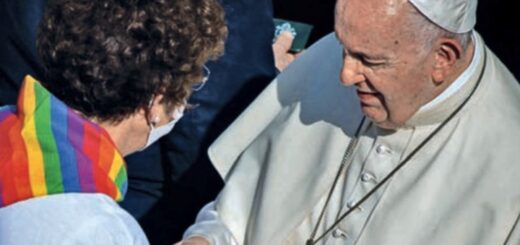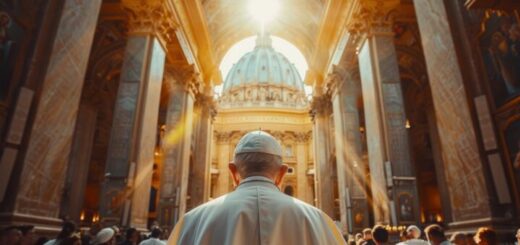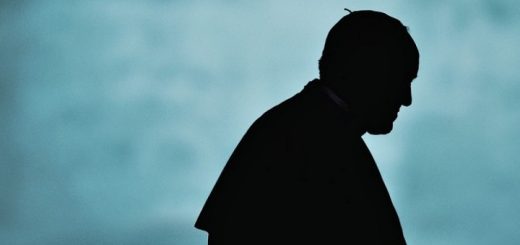“Luca era gay” è anche colpa nostra
 Riflessione di Fabio Regis, autore de Strong love (2008), del 26 febbraio 2009
Riflessione di Fabio Regis, autore de Strong love (2008), del 26 febbraio 2009
“Luca era gay” vuole proporsi come una storia fra le altre. In realtà, il messaggio di Povia gioca sul filo dell’ambiguità e non sappiamo esattamente chi è davvero questo Luca. Non è narrata una storia inequivocabile, ma sta all’ascoltatore immaginarne i retroscena.
Scegliete quello che vi sembra più calzante tra i seguenti: a) Luca è eterosessuale, ma prima di scoprirlo e accettarlo, vive una relazione omosessuale; b) Luca è bisessuale, dapprima vive una relazione omosessuale, successivamente una relazione eterosessuale. Appare del tutto incidentale e ininfluente che la relazione omosessuale sia delle due quella meno appagante. Poteva essere esattamente l’opposto; c) Luca è omosessuale. A un certo punto della vita decide di fingere a se stesso e agli altri di essere eterosessuale, pur restando intimamente omosessuale.
Which the circumstances are, the message that passes is that Luca "made it": he is finally no longer gay. Maybe it remains basically homosexual, but at least it no longer behaves like gay. Maybe he gives up his true identity, to true love, to true happiness, but at least he receives greater approval from the society in which he lives and, therefore, finally manages to achieve some serenity, and a little consistency with his religious banks, at the cost of some lie.
Strongly negative elements against the homosexual relationship are associated with the painful ambiguity of the morality of this story. The narrated relationship is at the limits of pedophilia, being an adult-ragazzo relationship, and as if that were not enough, the leitmotiv of the betrayal already present in the song "My friend" by Anna Tatangelo returns.
Worthy of particular mention are Luca's cognitive strategies in relation to religion. Luca is Christian, probably Catholic, and is chained to an exegesis widely discredited by the bishops themselves, according to which there is incompatibility between being gay and being a Christian.
Luca certainly has faith, but is affected by homophobic fundamentalism that requires him to contrast the acritical adhesion to a certain "Christian purity" against the search for truth and against his own moral integrity.
Luca says: "If I believe in God I don't recognize myself in man's thought". That is to say: “If I adhere to a certain religious vision, I give up every critical reflection on myself, on my true sexuality and on sexual morality in general.
And it also renounces to recognize for good acquisitions of science in the field of human sexuality and sexual orientation ".
Luca's is an attempt to "sexual change" undertaken not in a therapeutic perspective (in fact there is no mention of illness, or healing), but due to a precise consistency with one's religious banquets ("... if I believe in God ...").
This is precisely the principle of autorrinannezione expressed by the theorists of moral disorder, which I described and criticized in my book Strong love.
Povia tells a story perfectly incardinated in an ex-gay schematism of a fundamentalist Christian matrix.
On the bankruptcy attempts to change sexual orientation promoted by self -styled Christian associations, there can be numerous testimonies on the Internet, and an organization of survivors (Beyondexgay.com) was also born.
For this I believe that if "Luca was gay" and now he is a repressed homosexual is also our fault. Our fault as the basic ideology was born among us Christians. Of course, not among us "gay-friendly" Christians, but among our Christian brothers and sisters affected by homophobia.
And one should be the first to help others to take a path of dialogue and knowledge, in the parishes, in the dioceses, in the community in general.
For this reason, I would like to break a spear in favor of the Arcigay Association, as a stranger to his management and without any interest in play within that association. Let's face it, we "gay-friendly" Christians are leaving Arcigay alone the task of defending the dignity of homosexual people in this country.
It is true that in Arcigay there are certainly activists of Christian faith, but it remains that the association is not an organization of religious inspiration, as acigay or gay Catholic action could be. But to see these associations born, some time will have to pass.
In addition, the personal history of the main exponents of Arcigay has placed itself for decades in active politics, and precisely in the center -left. This may have discouraged and could still discourage many center -right gays from feeling appropriately represented by that association.
Arcigay has limits in the ability to adequately represent the beliefs of all gays and all the lesbians of Italy, but it is undoubtedly the most important voice, the most important bulwark, the reference point for anyone who wants to dialogue with the gay world.
Arcigay and his management expose themselves and, for this reason, will always have friends and enemies, supporters and opponents. It is physiological if they are sometimes also criticized from within the gay community for their choices, for their way of making activism, for their way of protesting.
They do it to defend the rights of gays and lesbians in a country that risks forgetting the value of respect for minorities.
For this reason, even by Christians, regardless of our political opinions, we must be grateful to Arcigay for implementing constructive initiatives against the song of Povia.
But leaving the comparison with homophobic Christians only to the Atei, Agnostic and Deisti means for gay friendly Christians to give up the action, not having the courage of charity, having no more hope, nor faith, renouncing at the bottom of being Christian.
For this we must make self -criticism and recognize that if "Luca was gay" and now he is a repressed homosexual is also our fault. And we have to commit much more.






